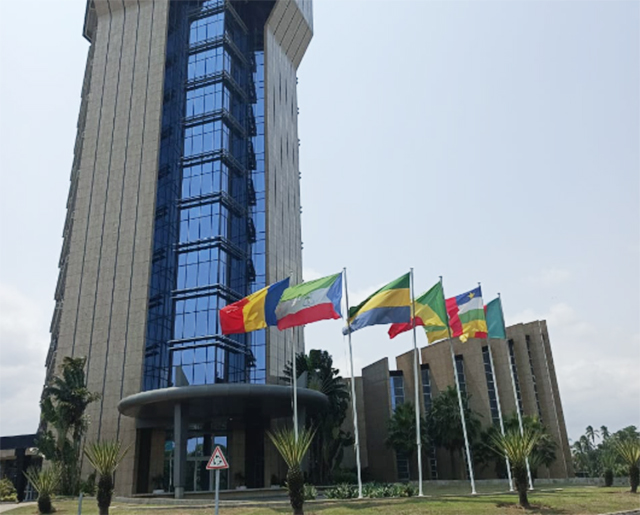
The Bank of Central African States (BEAC) convened its annual Economic and Financial Day (JEF) on July 24, 2025, bringing together experts, economists, and policymakers to examine the implications of the United States’ revised trade policy on the six member states of the Economic and Monetary Community of Central Africa (CEMAC): Cameroon, Central African Republic, Congo, Gabon, Equatorial Guinea, and Chad.
Held at the national BEAC headquarters in Libreville and broadcast to member states via videoconference from Yaoundé, the event focused on the theme: “Challenges and Opportunities of US Customs Tariffs for CEMAC Economies.”
The gathering comes amid growing global protectionism and follows recent tariff hikes by the United States under the Trump administration. The U.S. move, justified as a response to perceived unfair trade practices and imbalances, imposed additional duties averaging 10%, with some reaching up to 50%, on imports — including those from several African nations.
Despite the sweeping nature of these measures, CEMAC appears relatively insulated. “The direct impact of U.S. customs tariffs on CEMAC exports is limited, for a simple reason: the United States, accounting for just 2.1% of exports in 2024, is not a major trading partner compared to the European Union (27.4%) or China (24.5%),” said experts during the conference.
However, the broader consequences for African exporters — such as increased costs and declining competitiveness in the U.S. market — have prompted a call for strategic adaptation. Speakers emphasized the urgency of accelerating economic diversification, tapping into new consumer bases, and leveraging regional trade.
“The search for new markets is no longer optional; it’s a necessity,” analysts warned, pointing to the African Continental Free Trade Area (AfCFTA), which offers access to over 1.3 billion consumers, including 200 million in Nigeria alone.
Attention also turned to emerging powers of the Global South. Türkiye was cited as a promising partner due to its robust industrial base and proactive Africa policy.
Brazil, with its strong agricultural and industrial sectors, also emerged as a key prospect for both technological partnerships and energy-related exports.
As discussions wrapped up, participants called for coordinated policy responses from BEAC to mitigate the potential fallout of U.S. tariff changes and to prepare the subregion’s economies for global shifts ahead.



